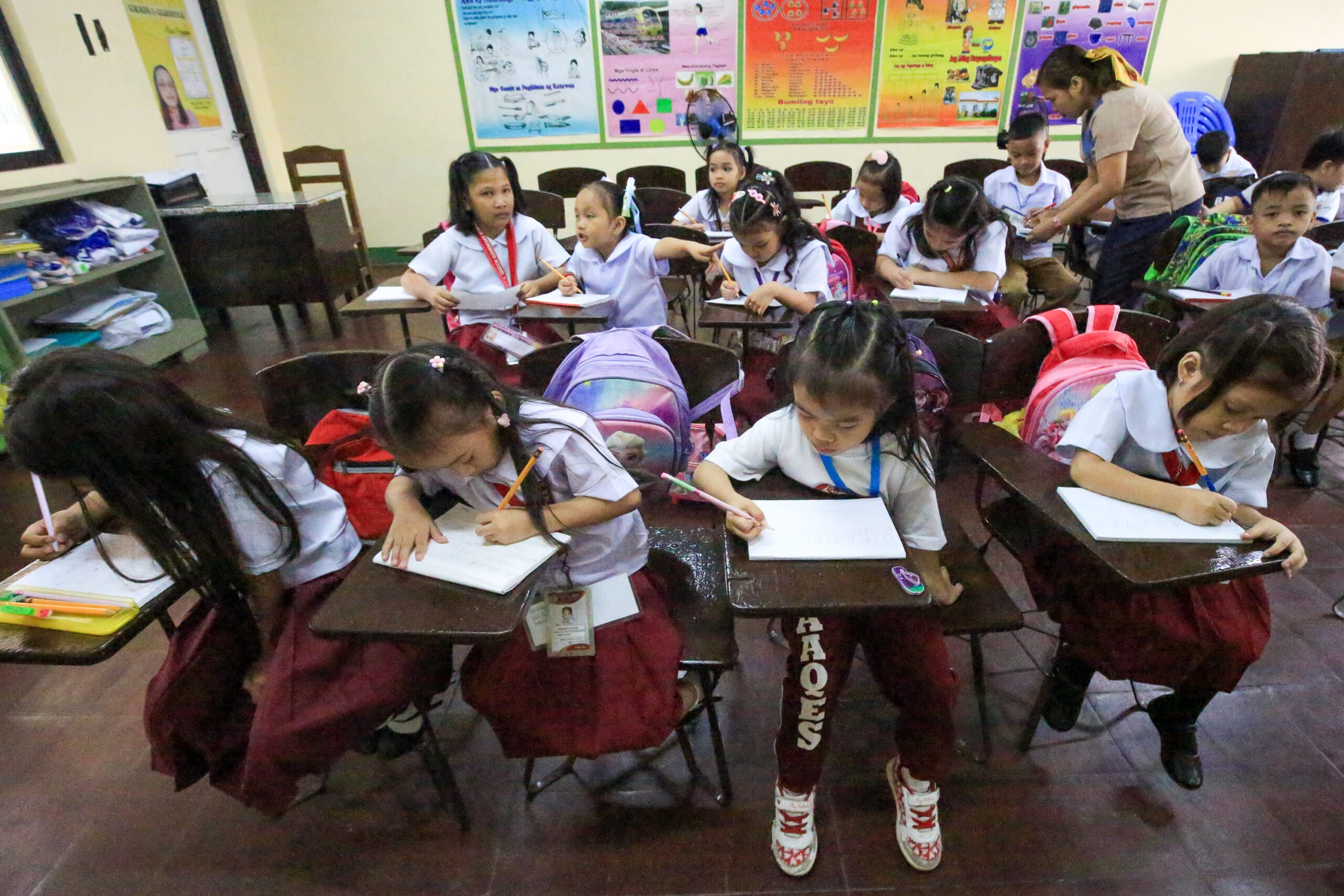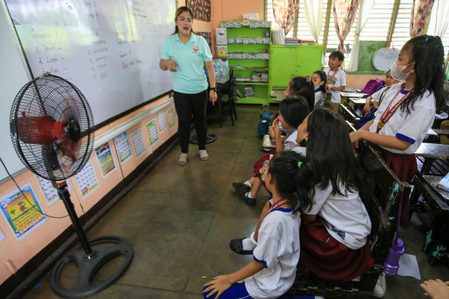SUMMARY
This is AI generated summarization, which may have errors. For context, always refer to the full article.

MANILA, Philippines — The Department of Education (DepEd) said that the Philippines’ poor showing in the 2022 Program for International Student Assessment (PISA) indicates a five- to six-year lag in learning competencies in the country.
“If we follow the computation (of PISA) with caveats, based on the OECD (Organization for Economic Cooperation and Development) with socioeconomically advantaged students, we can see that [we] are around five to six years behind,” Alexander Sucalit, officer-in-charge of the DepEd’s Bureau of Education Assessment-Education Research Division, told the media in a press conference.
The Philippines ranked 77th out of 81 countries globally in the student assessment conducted by the OECD for 15-year-old learners. In the 2022 student assessment, the country scored approximately 120 points lower than the average scores, with scores of 355 in math, 347 in reading, and 373 in science.
According to the OECD, each 20-point deficit from the average signifies a one-year lag in the annual learning pace of 15-year-olds in PISA-participating countries.
“But we have to be cautious in interpreting this because different countries have different paces of learning, so it’s just an estimate for the participating countries. We look not only at this figure, but we also look at other factors,” Sucalit explained.
Sign of resiliency, need for collective action
DepEd Undersecretary for Curriculum and Teaching Gina Gonong believed that the PISA result for the Philippines remains “positive” and acknowledged that many OECD countries experienced a decline in performance due to the COVID-19 pandemic.
“Our education system is stable and resilient. Of course, there’s much to be desired. Maybe, a few more cycles of PISA and we can see improvements,” Gonong said at a press conference.
Despite the global decline in performance due to the COVID-19 pandemic among OECD countries, she noted that the Philippines remained “stagnant” amid challenges in lesson delivery during lockdowns.
Gonong also said that the country aims to improve its assessment in PISA and reach the rank of top-performing countries like Singapore. However, achieving this will require time, given the ongoing implementation of education reforms.
“Maybe, working toward matching the scores of Southeast Asian countries is more realistic in the coming years… Maybe, 2029 onwards,” Gonong said.
Vice President and Education Secretary Sara Duterte, who was not at the event, said the Philippines’ performance in the 2022 PISA “bears uncomfortable truth” and called for a collective responsibility to to improve the country’s education system.

“The PISA results are not merely a reflection of our education system. It is a mirror reflecting our collective efforts, investments, and most importantly, our commitment to education and the future we envision for our children,” Duterte said in a video statement.
“As such, this is a call to action, a call to our collective responsibility as a nation. I call on everyone to pull our efforts together for a more resilient MATATAG education system, an education system that aims to improve learning outcomes, prioritize student and teacher well-being, and promote accountability to close remaining disparities,” she added.
Under her leadership, the education department introduced reforms to improve students’ performance in mathematics, science, and reading comprehension including the K-10 Matatag curriculum and the introduction of “catch-up Fridays” or allocating every Friday for basic education learners to enhance their reading and writing skills.
Learning recovery, higher education spending
Senate chairman on basic education Sherwin Garchalian said the government should intensify learning recovery programs to address pandemic-related learning loss and ensure that learners have access to well-designed remediation plans.
“Patuloy dapat nating tutukan ang pagbangon ng sektor ng edukasyon mula sa pandemya ng COVID-19 na nagdulot ng krisis. Marami pa tayong mga repormang isusulong upang matiyak ang dekalidad na edukasyon sa bawat kabataang Pilipino,” said Gatchalian.
(We should continue to focus on the recovery of the education sector from the learning crisis brought about by the COVID-19 pandemic. Many reforms have to be pursued to guarantee quality education for every Filipino youth.)
Despite the 2022 PISA results showing a slight improvement of +2.66 points in the country’s average performance, Gatchalian pointed out that the change in scores was not statistically significant.
Gatchalian also emphasized the need for increased educational spending, and pledged support for the DepEd’s initiatives to enhance the country’s education system.
ACT Teachers Representative France Castro also underscored the need to increase the education budget as she lamented the “dismal performance” of Filipino students in the 2022 PISA.
“It also highlights the dire need to increase the budget of the education system of the country to at least six percent of our gross domestic product, with a thrust for building more classrooms, hiring more teachers and increasing their salaries as well as adopting a curriculum that would make learning easier for students and more attuned to the Philippine situation,” Castro said. –Rappler.com
Add a comment
How does this make you feel?

![[EDITORIAL] Post-Sara Duterte resignation: Ang trahedya at ang pag-asa sa edukasyon](https://www.rappler.com/tachyon/2024/06/animated-sara-duterte-resigns-as-deped-chief-carousel.jpg?resize=257%2C257&crop_strategy=attention)
![[The Slingshot] Blunders and mess Sara left behind at DepEd](https://www.rappler.com/tachyon/2024/06/TL-Sara-Duterte-DepEd-June-24-2024.jpg?resize=257%2C257&crop_strategy=attention)


![[In This Economy] Duterte exits DepEd: Good riddance!](https://www.rappler.com/tachyon/2024/06/tl-duterte-exits-good-riddance-June-21-2024.jpg?resize=257%2C257&crop=220px%2C0px%2C720px%2C720px)
There are no comments yet. Add your comment to start the conversation.